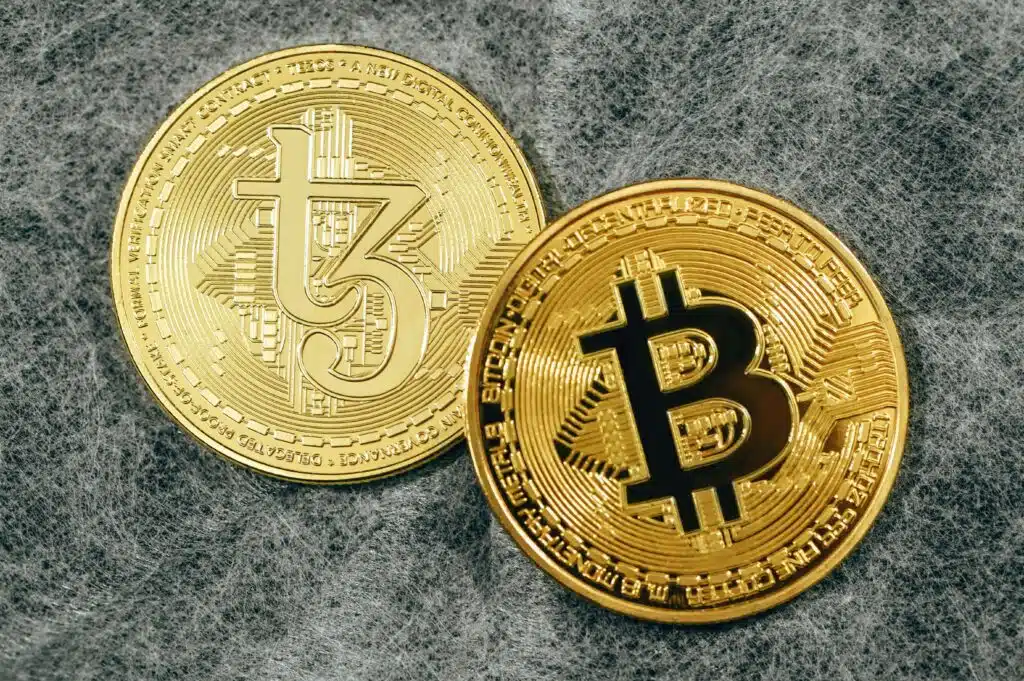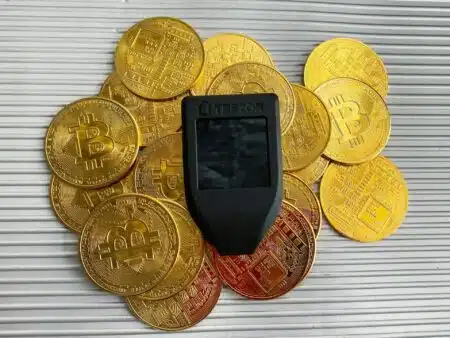When it comes to online gambling, the debate over fiat currency versus cryptocurrency is unavoidable. Both have special characteristics that shape the player experience, and getting these is main to deciding which option works best for different needs.
Fiat currency—your traditional dollars, euros, or yen—has long been the backbone of online casinos. It’s widely accepted across nearly all online gambling platforms and seamlessly integrates with conventional payment methods like credit cards, bank transfers, and e-wallets.
This familiarity offers a sense of reliability, particularly for players new to online gambling. Fiat transactions are straightforward, with established regulatory frameworks making sure safety and consumer protections. However, they come with drawbacks: processing times for deposits and withdrawals can lag, fees for international transfers can eat into winnings, and privacy is minimal as transactions are tied to personal financial information.
Cryptocurrency, on the other hand, revolutionizes this space with a fast, decentralized system. Transactions happen in minutes, often avoiding the delays seen with bank transfers or traditional payment methods.
Crypto casinos offer lower fees because they bypass intermediaries like banks—an element that appeals to frequent gamblers who want to maximize their returns. The decentralized nature of cryptocurrency also ensures global accessibility, breaking down borders for players in regions where fiat-money-based gambling may face restrictions.
A crypto wallet, not a bank account, handles transactions, which often translates to enhanced privacy and security for users. This draws players who prioritize anonymity, especially in jurisdictions with stringent gambling regulations.
Interestingly, the reliability of cryptocurrency transactions—built on blockchain technology—inspires confidence in game outcomes. Thanks to publicly verifiable smart contracts used in some platforms, everything from betting odds to payouts can be audited, adding a layer of transparency that traditional platforms struggle to replicate.
But let’s not ignore the risks. Crypto transactions, while innovative, can be intimidating to newcomers unfamiliar with wallet addresses and token management. Cryptocurrencies are also volatile; a sudden drop in value could decrease the purchasing power of funds in your gaming wallet overnight. Also, Bitcoin gambling faces ongoing regulatory uncertainty surrounding cryptocurrency, which means rules can shift quickly and unpredictably.
Table of contents
- Understanding Fiat Casinos and Crypto Casinos
- Deposits and Withdrawals: Speed, Cost, and Access
- Security and Anonymity in Crypto vs Fiat Casinos
- Bonuses and Promotions: Fiat vs Crypto Casinos
- Key Differences in User Experience and Accessibility
- Regulatory Impacts on Fiat and Crypto Gambling Platforms
- Volatility and Value Stability in Online Casino Funds
- Related Articles
- Fiat vs Crypto FAQ
Here’s a comparison of fiat vs crypto characteristics for online gambling:
| Feature | Fiat Casinos | Crypto Casinos |
| Transaction Speed | 1-5 business days (withdrawals) | Usually within minutes |
| Fees | Moderate to high (bank fees) | Low to negligible |
| Global Accessibility | Restricted in some regions | Broad, decentralized access |
| Privacy | Limited | High |
| Transparency | Limited | Blockchain ensures accountability |
| Value Stability | Stable | Volatile |
While fiat transactions cater to players valuing stability, cryptocurrency transactions appeal to those who seek speed and security.
The decision in the end hinges on personal preference. Do you value the established convenience of traditional payment methods, or do you prefer crypto’s innovation with its faster transactions and potential for higher security? Both have a place now’s gambling industry, and as online gambling platforms continue to adapt, the choice between fiat and crypto becomes even more lively.
Understanding Fiat Casinos and Crypto Casinos
When we dive into the heart of online gambling, the payment methods stand out as a decisive factor in shaping the overall gaming experience. Two dominant options dominate the scene: fiat casinos and crypto casinos. Let’s break down how these platforms work, what they offer, and what sets them apart.
How Fiat Casinos Work
Fiat casinos operate on traditional banking systems and rely on government-backed currencies like the US Dollar, Euro, or Pound. These platforms are regulated extensively to ensure financial and legal compliance.
They require players to go through Know Your Customer (KYC) verification, which involves sharing personal information such as ID, address, and sometimes even financial documents. While this ensures security and prevents fraud, it makes transactions less private.
When it comes to payment methods, fiat casinos offer a mix of traditional options like:
- Credit and Debit Cards: Visa or Mastercard integration for instant deposits.
- E-Wallets: Services like PayPal or Skrill for quicker, relatively hassle-free transactions.
- Bank Transfers: Slower but secure for larger deposits and withdrawals.
However, these platforms are often bogged down by transaction fees and waiting times. Think of converting Euros to Dollars or Pounds—banks and payment processors take their cut, sometimes upwards of 2-5% in fees. Add in processing times of 1-5 business days for withdrawals, and it’s clear fiat casinos are efficient but not always seamless.
The bright side? Fiat casinos are typically licensed by renowned authorities like the UK Gambling Commission (UKGC) or the Malta Gaming Authority (MGA). These licenses ensure fairness, protection, and accountability. For example, if an online casino suddenly folds, these regulatory bodies often step in to protect player funds.
But privacy and speed? That’s where fiat casinos lag. Every deposit, withdrawal, and wager is easily traceable.
How Crypto Casinos Operate
Crypto casinos flip the script. They welcome blockchain technology and run on cryptocurrency transactions like Bitcoin, Ethereum, or Litecoin. Deposits, withdrawals, and bets are made in digital currencies, offering heightened privacy and global accessibility.
Unlike fiat casinos, many crypto casinos don’t enforce big identity checks. There’s no KYC requirement in many cases—just a wallet address for transactions. This moves the needle significantly toward user anonymity.
One of crypto casinos’ biggest draws is their fast transactions. A Bitcoin deposit confirms in about 10 minutes, while Ethereum processes even faster, usually under 5 minutes. Plus, transaction fees in crypto are minimal compared to traditional banking methods; you’re looking at fractions of a dollar versus 2-5% per transaction.
Here’s where it gets interesting: crypto casinos often implement smart contracts. These eliminate human error and ensure that payouts, game logic (like fair roulette spins or blackjack outcomes), and bonuses are publicly verifiable on the blockchain.
Licensing for crypto casinos operates a bit differently. Many such platforms are authorized in jurisdictions with favorable crypto laws, like Curaçao. While not as stringent as the UKGC, these licenses still indicate a level of trustworthiness.
However, the crypto view isn’t without downside risks. The decentralized nature of cryptocurrencies means no government or bank can bail out lost funds in case of fraud. Regulatory uncertainty also hovers, and crypto casino users must exercise caution.

Fiat vs. Crypto: Main Operational Differences
| Feature | Fiat Casinos | Crypto Casinos |
| Currencies | Fiat money (USD, Euro, Pound) | Digital currencies (BTC, ETH, LTC) |
| Transaction Speed | 1-5 business days for withdrawals | Typically under 10 minutes |
| Fees | High (2-5%) for conversions and transactions | Low (fractions of a dollar) |
| Privacy | KYC verification required, all activities traceable | Pseudonymous, anonymity is prioritized |
| Licensing | Regulated by stricter authorities (UKGC, MGA) | Looser regulations, often licensed in crypto-friendly regions |
| Security | Backed by legal frameworks | Enhanced security via blockchain technology |
In the end, when deciding between fiat casinos and crypto casinos, the differences are clear. Fiat embodies familiarity and regulatory backing, while crypto promises innovation, speed, and privacy. Whether you prioritize privacy or prefer the safety net of traditional systems, the choice boils down to what enhances your online gambling experience.
Deposits and Withdrawals: Speed, Cost, and Access
When it comes to online gambling, the efficiency of deposits and withdrawals can be a game-changer. Whether it’s traditional fiat money systems or cryptocurrency transactions, each offers distinct advantages and disadvantages in terms of speed, cost, and access.
Fiat Payment Processing
Fiat transactions rely on traditional banking methods like credit cards, bank transfers, and e-wallets. These systems, while familiar and widely accepted, often come with important limitations.
- Speed: Transactions using fiat currency can range from a few hours to several days to process. For international transfers, delays related to banking hours or holidays can stretch the wait time even further. If you’ve ever sat there refreshing your bank account, wondering where your deposit is, you’ve felt the lag in traditional systems.
- Cost: Fees can be steep. Between transaction costs, service charges, and currency conversion fees, players often find themselves paying more than anticipated. For example, a $100 deposit may incur upwards of 3-5% in fees, depending on payment methods and regions.
- Access: Fiat casinos may feel restrictive depending on your geographic location. Local gambling laws dictate payment options, and those without access to traditional bank accounts or credit cards are often excluded. The reliance on centralized systems means these platforms are not universally accessible.
In short, fiat transactions offer reliability but can feel frustrating when delays, expenses, and regional limitations stack up.
Crypto Transactions in Online Gambling
Now let’s unpack cryptocurrency transactions in online casinos. With the rise of Bitcoin and other crypto coins, these platforms have reshaped the deposits and withdrawals view.
- Speed: Crypto transactions are blazing fast compared to fiat. Most payments and withdrawals settle within minutes or hours, depending on the blockchain used. Waiting for your winnings? A Bitcoin transaction processes far quicker than an international bank transfer.
- Cost: Transaction fees with crypto are often lower than fiat systems, although they can vary depending on network congestion. For example, sending funds via Ethereum might incur fees during peak hours, but on average, crypto offers cost savings.
- Access: The decentralized nature of blockchain technology removes geographical barriers. Unlike fiat casinos requiring banking systems, crypto casinos only need a wallet address. This makes it easier for players in areas with restrictive gambling laws to participate freely. The lack of intermediaries ensures broader global accessibility.
| Feature | Fiat Payment Processing | Crypto Payment Processing |
| Speed | Hours to days | Minutes to hours |
| Cost | High (3-5% fees) | Low, but fluctuates by blockchain |
| Global Access | Restricted by local banking systems | Decentralized, fewer restrictions |
If speed, affordability, and accessibility are priorities, crypto has a noticeable edge in online gaming. However, cryptocurrency’s volatility and the necessity of managing a crypto wallet might cause hesitation for some.
Using digital currencies removes the friction of traditional payment methods, allowing casinos to offer quicker deposits and withdrawals while lowering costs for players. The experience is seamless for those who prefer crypto, though not without learning curves for those new to cryptocurrency gambling systems.
Security and Anonymity in Crypto vs Fiat Casinos
When it comes to security and anonymity, the playing field between crypto casinos and fiat casinos is anything but level. The main differences boil down to how these online gambling platforms handle user data, transactions, and risks. So, let’s break it down based on privacy expectations and security measures.
Privacy and KYC Requirements
Privacy is a make-or-break factor for many players. Fiat casinos typically require big Know Your Customer (KYC) verification during registration. This involves sharing personal information like your full name, address, proof of identity, and sometimes even a photo. Why? It all comes down to regulations aimed at preventing fraud and money laundering. While this adds a layer of trust, it also means your information is stored in centralized databases — a tempting target for hackers.
On the other hand, crypto casinos tend to approach privacy differently. Many platforms allow you to gamble without ever having to disclose your personal details. Instead, your cryptocurrency wallet address serves as your identifier. Thanks to the pseudonymous nature of Bitcoin and other cryptocurrencies, these casinos provide a staggering level of confidentiality. However, policies can vary. For example, some crypto casinos implementing regulatory requirements may still mandate KYC under certain jurisdictions. If your top priority is remaining anonymous, you’ll want to confirm the platform’s policy on this upfront.

So, the choice is clear: if you’re comfortable sharing your details for security and trust, fiat casinos have you covered. If, however, you’d rather maintain your privacy while gambling online, crypto casinos offer a compelling solution.
Security Measures and Risks
Security is a baseline expectation — especially in online gambling where real money or crypto coins are constantly changing hands. Fiat casinos rely on tried-and-true centralized systems. Most reputable platforms implement SSL encryption, safeguarding your data during transactions. However, the centralized nature of these systems isn’t without flaws. From time to time, we’ve seen notable data breaches in the traditional online gambling sector, compromising sensitive user information.
Crypto casinos take an entirely different approach. Blockchain technology fundamentally changes how security works by decentralizing the ledger. Each transaction is recorded, immutable, and publicly verifiable — minimizing fraud or tampering. Also, provably fair games rely on cryptographic algorithms that ensure game outcomes cannot be manipulated. This level of enhanced security doesn’t just sound promising. It has cemented blockchain as a cornerstone for modern crypto gambling platforms.
That said, crypto isn’t immune to risks. Losing private keys for your crypto wallet means permanent loss of funds — no help desk is going to retrieve those for you. Plus, the lack of regulatory oversight in many jurisdictions adds a layer of unpredictability. New users might find themselves gambling on unregulated platforms without entirely getting their vulnerabilities.
Here’s a snapshot comparing the two:
| Factor | Fiat Casinos | Crypto Casinos |
| Data Storage | Centralized (prone to breaches) | Decentralized (more secure) |
| Game Fairness | Audited by third parties | Provably fair via blockchain |
| Anonymity | Requires full KYC | Pseudonymous, no personal info needed |
| Risks | Risk of hacked databases | Risk of losing wallet keys |
To wrap this up, the battle of security and anonymity between fiat and crypto boils down to priorities. If you want traditional safety nets and don’t mind KYC, fiat casinos offer familiar, regulated systems. If you value independence, transparency, and privacy above all else, then crypto and blockchain-based casinos clearly stand out.
Bonuses and Promotions: Fiat vs Crypto Casinos
When it comes to bonuses and promotions, the differences between fiat casinos and crypto casinos are striking. These incentives play a pivotal role in how players choose where to gamble online, and each category has special strengths and limitations.
Traditional Bonus Structures in Fiat Casinos
Fiat casinos boast a more conventional approach. Their offerings include welcome bonuses, match deposit bonuses, and free spins tied to fiat payment systems. While familiar, these promotions come with stringent wagering requirements, often around 35x or higher, meaning players must bet the bonus amount multiple times before they can withdraw any winnings.
Bonuses in fiat casinos are generally standardized and regulated, making sure compliance with the local laws of their jurisdictions. That’s an advantage for transparency, but it also adds red tape—especially for players in regions where fiat money transactions are slow or expensive. Specific terms often include time restrictions, requiring players to meet conditions within a limited period, or else the bonus expires.
We’ve noticed bonuses like no-deposit offers are quite rare in fiat-based casinos, and when they do appear, they frequently come with additional tricky parts. Geographic restrictions also mean that many promotions may not be available to all players, further limiting accessibility.
A breakdown of common fiat casino bonuses:
| Bonus Type | Availability | Wagering Requirements | Time Limits |
| Welcome Bonus | High | 35x or more | 7-30 days |
| Deposit Match | High | 30x or more | 7-30 days |
| Free Spins | Moderate | 20x-40x | Up to 7 days |
| No Deposit Bonus | Rare | 40x or higher | 7-14 days |
What does this mean for players? While these bonuses can be lucrative, the hoops you need to jump through often drain the excitement—a consistent complaint we hear from traditional online gambling fans.
Special Offers in Crypto Casinos
Crypto casinos, in contrast, offer promotions with a modern twist. They’re not boxed in by traditional banking constraints, enabling them to provide bonuses that are not only more lively but also highly customized. Cashback, rakeback rewards, and VIP token programs are just a few examples of the flexible options we’ve seen in cryptocurrency casinos.
The wagering requirements in crypto casinos tend to be lower and more transparent, giving players a clear view of what’s expected. For example, a 10x wagering requirement is not uncommon, making it far easier to access any winnings compared to the steep conditions of fiat casinos.
By leveraging blockchain technology, crypto casinos can implement lively and innovative promotions. This means bonuses can be programmed for flexibility—changing based on the player’s gaming activity or loyalty tier. Crypto casinos also often reward players with specific cryptocurrency tokens, adding another layer of value to these promotions as those tokens can appreciate over time.
To put it into perspective:
| Bonus Type | Availability | Wagering Requirements | Customization |
| Welcome Bonus | Moderate | ~10x | Can be tied to crypto coins |
| Cashback/Rakeback | High | None or <5x | Based on spending level |
| Token Rewards | High | None | Integrated with loyalty tiers |
| VIP Perks | High | None | Tiered VIP or player levels |
For example, some crypto casinos offer loyalty plans where players earn part of the casino’s rake as cashback, a setup more common in cryptocurrency gambling than in traditional platforms. This approach changes the lively entirely—it’s no longer just about fulfilling requirements but about ongoing rewards.
But crypto is not without its challenges. Programmed bonuses and promotions can be highly technical for players unfamiliar with how digital currencies and scripts work. Plus, the decentralized nature of blockchain eliminates local verification but places the burden on the players to understand the smart contracts governing their bonuses.
So, when comparing bonuses in fiat vs crypto casinos, the main differences lie in flexibility, transparency, and accessibility. Crypto casinos offer faster and more player-centric promotions, while fiat casinos stick to time-tested, regulated—but often cumbersome—systems that some players may still prefer for their predictability.
Key Differences in User Experience and Accessibility
When discussing fiat vs crypto which is better for online gambling, user experience and accessibility often become pivotal aspects in determining preference. Both options cater to different gamblers, so getting how they compare is essential.
Onboarding and User Interfaces
The onboarding process creates the first impression for players joining any online gambling platform. Here’s where we see a clear divide between fiat casinos and crypto casinos.
Fiat Casinos
For those familiar with traditional gambling platforms, the onboarding process at fiat casinos feels very structured but tedious. Players have to fill out big registration forms, submit personal information, and complete KYC (Know Your Customer) procedures. This usually involves uploading government-issued IDs, verifying addresses, and in some cases confirming banking details. While these steps ensure compliance with regulatory standards and eliminate fraud risks, they come at the cost of convenience. It can take hours or even days to set up an account fully.
The user interfaces in fiat casinos are designed to feel intuitive and cater to users familiar with traditional banking methods like card payments, bank transfers, and e-wallets. However, the segmented process — from depositing funds to waiting for confirmation — reflects the limitations of traditional payment methods.
Crypto Casinos
In contrast, crypto casinos offer a streamlined experience from the moment you land on their platform. Often, all you need is a connected crypto wallet to start playing. Skip the forms, skip the third-party verifications — it’s as simple as linking your wallet and diving into your favorite games, from slot games to blackjack.
For users comfortable with digital currencies, this fast registration process is a gamechanger. But let’s address the elephant in the room: crypto wallets intimidate some players. The lack of familiarity with cryptocurrency transactions or managing keys creates a barrier for newcomers. That said, once you understand the mechanics of a wallet, crypto casinos offer a seamless onboarding trip that prioritizes ease of use over documentation.
| Comparison | Fiat Casinos | Crypto Casinos |
| Registration | Lengthy, requires KYC verification | Quick, with only wallet connection required |
| Time to Sign Up | Long (hours to days) | Instant |
| Verification | Mandatory (ID, address, banking info) | Rarely required, depends on local regulations |
| Ease of Use | High for traditional payment methods but time-heavy | High after getting wallet basics |
Global Accessibility and Restrictions
Accessibility is a cornerstone for any online gambling nature, and crypto and fiat casinos approach this very differently.
Fiat Casinos
One major limitation of fiat casinos is their geo-restrictions. Different countries enforce gambling regulations that restrict who can access these platforms. For example, a player from Germany may not be able to access the same platform as someone in the U.S. due to licensing requirements and banking laws. Also, fiat currency transactions often go through traditional banking systems, which impose additional restrictions, especially for cross-border payments.
This gets worse when bank freezes or denied gambling-related transactions emerge – an issue countless players face globally. For those in heavily regulated regions, fiat money can feel like a locked gate rather than a main to enjoy online gaming.
Crypto Casinos
Now let’s flip the coin to crypto casinos. Fueled by blockchain technology, these platforms thrive on their ability to break barriers. Since cryptocurrency transactions operate independently of centralized banks, users from regions with stringent gambling laws often find themselves able to participate in games without restriction. Think of it this way: crypto casinos are the passport for gamers finding my way an otherwise fragmented planet of gambling restrictions.
That said, even crypto casinos aren’t entirely immune to global challenges. Some jurisdictions like the UK have begun cracking down on the use of crypto in gambling, demanding conditions like KYC, which tether some platforms back to fiat-like regulations. However, where enforcement is low or gambling is unregulated, cryptocurrency gambling shines in accessibility.
| Comparison | Fiat Casinos | Crypto Casinos |
| Geo-Restrictions | Important, tied to local laws | Minimal, except in high-enforcement regions |
| Payment Barriers | Present (bank blocks, currency conversion fees) | Nonexistent for accepted cryptocurrencies |
| Accessibility | Limited | Borderless (dependent on individual laws) |
These main differences make the choice between fiat and crypto about more than convenience — it’s about where you stand on privacy, ease of entry, and global reach. Whether we’re finding my way forms for fiat transactions or unlocking global games with a crypto wallet, getting these nuances is vital for gamblers deciding between these two systems.
Regulatory Impacts on Fiat and Crypto Gambling Platforms
When gambling online, the regulatory framework surrounding the platform of choice—whether fiat or crypto—can dramatically shape your experience. Both options come with distinct advantages and hurdles, particularly in compliance and operational legitimacy.
Compliance and Licensing for Fiat Casinos
Fiat casinos are regulated by some of the most strong and transparent authorities in the planet, including the United Kingdom Gambling Commission (UKGC) and the Malta Gaming Authority (MGA). These licenses don’t just sit on the shelf—they require rigorous compliance with anti-money laundering (AML) laws, know-your-customer (KYC) standards, and strict data protection protocols.
Why does this matter? Because it protects us, the players. Licensed fiat casinos undergo regular audits and must maintain operational transparency. For example:
- Financial Transactions: With fiat transactions connected directly to traditional banking methods or e-wallets, these platforms are obligated to ensure funds are traceable. This minimizes risks of fraud or money laundering.
- Fair Gaming Practices: Licenses mandate the use of fair algorithms and randomized game outcomes. Slot games, roulette systems, and blackjack all fall under scrutiny to ensure fairness.
- Legal Recourse for Players: Disputes aren’t left to the mercy of the casino. If something goes wrong, platforms regulated by the MGA or UKGC are required to offer a system to escalate complaints, giving us confidence as players that our rights are protected.

Here’s a quick snapshot of what fiat regulation demands compared to crypto:
| Factor | Fiat Casinos | Crypto Casinos |
| Licensing Authorities | UKGC, MGA, Local Gaming Commissions | Few jurisdictions regulate; many operate unlicensed |
| Compliance Requirements | AML, KYC, Data Security, Consumer Protection | Minimal or unclear |
| Player Protection | High – Legal Dispute Mechanisms | Varies – Often No Recourse |
The regulated structure of fiat casinos may result in slower account creation or withdrawal times—something we’ve all cursed at one point—but that’s the tradeoff for consumer protection.
Regulatory Ambiguity in Crypto Gambling
Crypto casinos, on the other hand, operate in a frontier-like view. Regulation? It’s a mixed bag.
With crypto transactions relying on blockchain technology, these platforms often provide heightened privacy, thanks to wallet addresses replacing big KYC documentation. But this also means that many online gambling platforms running on cryptocurrencies may not be subjected to, or in compliance with, established gambling laws. That’s the double-edged sword of the decentralized nature of cryptocurrency gambling.
Unfortunately, the lack of clarity here poses challenges:
- Unclear Geographic Rules: Some countries outright ban cryptocurrency gambling. In others, regulation is nonexistent, leaving players unsure if they’re in legally murky waters.
- Risk of Platform Shutdown: Without stringent licensing, governments can act decisively against unregulated online casinos. Imagine investing time and crypto coins into a platform, only to wake up and find it inaccessible.
- No Assurance Mechanism: Unlike fiat casinos, crypto gambling platforms rarely offer legal recourse if disputes arise or funds are lost.
Yet for those willing to assume the risks, crypto casinos present opportunities fiat ones cannot match. For example:
- Transactions are lightning-fast compared to fiat methods like bank transfers or e-wallets.
- They often skip cumbersome KYC verification, letting players jump straight into action without waiting hours or days for approvals.
This regulatory ambiguity has allowed crypto casinos to flourish in regions where fiat currency-regulated platforms might have restrictive limitations, providing accessibility to users otherwise locked out of traditional online gambling platforms.
But should we prefer crypto casinos purely for their ease? It comes down to what we value more: security and stability or speed and privacy? Getting the regulatory framework for both fiat versus crypto gambling gives us the knowledge to navigate this complex space.
Volatility and Value Stability in Online Casino Funds
When it comes to deciding between fiat and cryptocurrency for online gambling, the topic of volatility and value stability is impossible to ignore. These aspects directly influence how players manage their funds and approach risk during gameplay.
Fluctuating Crypto Value During Play
Cryptocurrencies like Bitcoin and Ethereum are captivating because of their market dynamics, but this same trait can create unpredictability in online gambling. We’ve seen how important price swings can transform a player’s balance overnight—either amplifying wins or eroding them.
Imagine hitting a jackpot in Bitcoin (BTC) today, only to find its value drops by 15% the next morning. The potential for gains and losses doesn’t stop with the game outcome; it extends to how the market performs. Timing becomes paramount. Players who choose to wait for the market to recover before cashing out might benefit, but they also take on additional risk.
While stablecoins, designed to maintain a fixed value tied to fiat currencies, reduce this problem, they aren’t completely immune to market fluctuations. Slight de-pegging can still occur, particularly during volatile periods. Cryptocurrencies add layers of excitement and complexity, but the uncertainty can be scary to many players who prefer predictability over variance.
Here’s a quick breakdown of how crypto’s volatility can play out during gambling:
| Scenario | Impact on Funds |
| Crypto Value Increases Post-Win | Boosts the value of your earnings after a win |
| Crypto Value Drops Post-Win | Reduces the total worth of your gains significantly |
| Stablecoin De-Pegging | Minor deviations can cause marginal losses or gains |
| Consistent Market Stability | Preserves balance, allowing users to focus on gambling |
This variability, while thrilling for some, makes it necessary to weigh risk and reward carefully when choosing crypto for gambling online.
Stability and Predictability with Fiat Currencies
On the flip side, fiat currency provides a foundation of stability that can appeal to those who prioritize consistency. Whether it’s the dollar, euro, or pound, fiat money doesn’t fluctuate with global market sentiment. It stays predictable—even boring in comparison—but sometimes boring is exactly what some gamblers need.
For risk-averse players, fiat is the go-to choice. Wins hold their value, losses don’t multiply due to external market factors, and your funds are exactly worth what they were yesterday. There’s no need to monitor price charts or strategize around market conditions. This simplicity can make a planet of difference, especially for those new to online casinos or people who want to focus solely on gameplay without the distraction of financial speculation.
Let’s compare fiat stability to cryptocurrency’s fluctuating nature side by side:
| Currency Type | Value Stability | Player Preference |
| Fiat Currency | Stable | Ideal for players looking for predictability |
| Cryptocurrency | Volatile | Suits those willing to accept higher risks |
By using fiat, tracking wins and losses becomes linear. There’s no guessing. It’s straightforward, like wagering $50 and knowing it will remain $50 whether you win or lose.
Fiat transactions also fit seamlessly with traditional online gambling platforms, supported by tried-and-true banking methods like credit cards, bank transfers, or e-wallets. While these methods include processing times and fees, they’re dependable—and for many, that matters more than speed or anonymity.
So, when it comes to fiat vs crypto, the decision should align with how much financial stability you value during your gaming experience. Do you want the excitement of market-dependent swings, or do you prefer the consistency of traditional fiat money? Both offer distinct advantages, but their differences are pivotal within the gambling industry.
Related Articles
Fiat vs Crypto FAQ
Fiat casinos use traditional currencies like USD or EUR and rely on established banking systems, offering stability and regulation but slower processing and less privacy. Crypto casinos use digital currencies like Bitcoin or Ethereum, offering faster, lower-fee transactions and greater privacy, but come with higher volatility and regulatory uncertainty.
Yes. Crypto transactions typically process within minutes and often carry very low fees. In contrast, fiat casinos may take 1–5 business days for withdrawals and charge higher fees, especially for international or currency conversion transactions.
Not always. Many crypto casinos allow users to play anonymously using just a crypto wallet address. However, some may require KYC verification depending on the jurisdiction or their licensing status.
Crypto casinos leverage blockchain for transparency and security, with provably fair games and decentralized systems reducing fraud risk. However, users must manage their wallet keys carefully, as losing access means losing funds. Regulatory protection is also limited compared to fiat platforms.
Crypto casinos tend to offer more flexible, lower-wagering, and personalized promotions like cashback and token rewards. Fiat casinos provide more traditional bonuses (e.g. deposit matches), but these often come with stricter conditions and higher wagering requirements.







